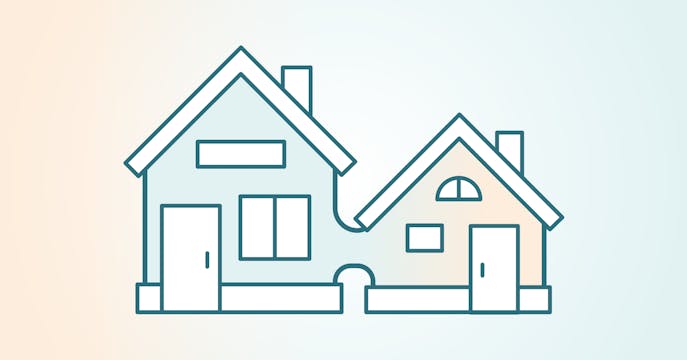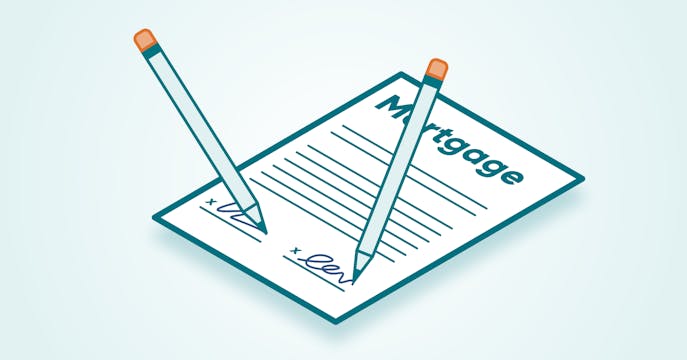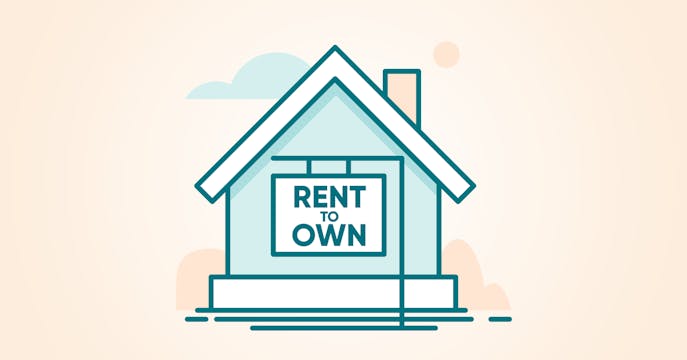The term 'Halal' is commonly associated with religiously sanctioned food items. It means 'allowed' or 'permitted' in Islamic practices and can thus be applied to any product or practice (like mortgages).
How easy is it to get a Halal Mortgage?
A no-interest mortgage, this Sharia-compliant product is offered by a few smaller lenders in Canada.
But there's buzz that wider access may be on the way.
No-interest mortgage. Interested?
Recently highlighted in the Canadian federal 2024 Spring Budget, Halal mortgages are having a moment.
With this product, the borrower isn't charged interest — a major departure from standard home loans. Instead, it uses other carrying charges that align with Islamic tenets while still adhering to Canadian law.
Anyone can apply for a Halal mortgage, though its purpose is to support the Muslim community in owning homes. Wider access is limited due to a lack of federal definition and regulation, which the government has pledged to address.
So, does no interest mean paying less for a home loan or that the mortgage is easier to manage and budget?
What is a Halal mortgage?
A Halal mortgage is a Sharia-compliant alternative lending product used to buy a home that avoids interest-based charges.
According to Sharia (Islamic) law, charging interest is seen as 'usury,' an illegal practice of employing unreasonably high rates that, in turn, creates financial enslavement.
(With today's higher interest rates, this characterization may have some nodding agreeably.)
Halal mortgages aren't new. Other countries, like the U.S. and the U.K., have been offering them since the early 2000s, though efforts to establish wider access have been slow, primarily due to regulatory delays and their niche nature.
Canada is seeing growing demand for Halal and religious-compliant mortgages. The federal government's recent highlight suggests that implementing better legal and tax regulations can encourage more lenders to offer this product — the current lack of competition means they're a more expensive option for Muslim homeowners.
Does 'no interest' mean Halal mortgages are cheaper?
Halal mortgages are currently more expensive than a typical interest-based mortgage, costing the borrower about 4.0% more on average.
The increased costs, paying 'profits' rather than interest rates, are due to a few factors, including:
- Lack of defining regulations, tax laws, and insurance eligibility means more risk exposure for lenders
- That increased risk exposure results in generally higher fees and costs charged to the borrower
- Limited access means less competition, which could encourage lower pricing
- Charging methods still need to account for potential interest-rate market fluctuations and relative profit gains
- A larger down payment is required for an uninsured mortgage (as per Canadian regulations)
- Depending on the structure, lenders may also run up against an inability to foreclose due to Islamic principles, increasing risks in recouping funds if the borrower can't pay
These factors add up to a less affordable product compared to standard mortgages.
Depending on the loan structure, other difficulties can arise, such as dealing with the lender on the home's title as a part-owner until the loan is paid off, restricting the homeowner's access to the home's equity, or increasing the complexity of the home's sale.
How are Halal mortgages structured?
To avoid traditional interest-based lending, Halal mortgages can be structured as profit-generating arrangements, such as joint venture partnerships, lease-to-own agreements, or cost-plus-markup (fee-based) sales.
Despite the lack of interest rates, these structures don't necessarily mean that payments won't change over the life of the loan.
Contracts may allow the lender to adjust fees or rents to general market conditions during or upon term renewal.
At the very least, however, Halal mortgages may be able to escape the volatility of a variable-interest-rate mortgage, whose payments float along with changes in bank prime rates.
Instead, they'll more closely resemble the fixed payments of a fixed-rate mortgage for predictable budgeting.
How much down payment is needed?
The lack of guiding regulations means that Halal mortgages aren't currently eligible for default insurance through one of Canada's three providers, so lenders require at least a 20% down payment (called a conventional mortgage) — vs. a minimum of 5% down, depending on the home's price.
A larger down payment may not be as easy to gather under Sharia law, as using interest-gaining products (such as an RRSP) towards a down payment is also prohibited.
An interest-based conventional mortgage usually comes with a slightly higher rate to offset the higher risk of borrower default.
Halal mortgages are typically more expensive than conventional mortgages in Canada.
Are penalties charged for late payments or pre-payments?
For Halal mortgages, lenders are still required to collect late payment or early pre-payment penalties in compliance with Canadian laws. However, the lender is not allowed to keep these penalties and are usually donated to charities.
Do Halal mortgages have standard mortgage term lengths?
It depends on the lender. Some Halal mortgages are structured for the entire length of the loan without separate 'terms,' with one contract that may account for changes that can be applied over the years without reforming the contract.
Other lenders offer up to 5-year renewal periods (standard for interest-based mortgages, as well) during the amortization.
How long are Halal mortgage amortizations?
Currently, this product can be set with amortizations (mortgage loan length) similar to standard interest-based mortgages, up to 25 years. However, the particular structure may dictate a shorter amortization (such as 10 or 15 years) to rein in the potential for market fluctuations.
A shorter amortization or rent-to-own contract period will result in higher monthly payments.
What are the benefits of Halal mortgages?
- Allows Muslim buyers to realize their dream of owning a home (within the constructs of their beliefs) and exit the renting cycle
- Depending on the lender and structure, a predictable payment schedule can allow for easier budgeting (though payments may be adjusted during the mortgage amortization or at term renewal)
What are the drawbacks of Halal mortgages?
- Higher overall costs compared to conventional interest-based mortgages
- Limited availability of lenders offering these products
- Legal issues that may arise from shared equity or rent-to-own contracts if changes are needed (for example, selling the home to move for a job)
- Raising enough down payment for 20% down (vs. having access to insured mortgages that can be acquired with only 5% down)
Who can apply for a Halal mortgage?
Anyone can apply for a Halal mortgage who meets the lender's qualifications.
Lenders will take into account typical requirements to qualify you for the loan, such as income source, credit score, and debt load.
Where can you currently get a Halal mortgage?
Here are some lenders in Canada who offer this product (the province you reside in may affect access):
- EQRAZ (lends in all provinces SK)
- Manzil (currently lends in AB and ON)
- Canadian Halal Financial Corporation
Please inquire locally to see which lenders may offer Halal mortgages in your area.
If regulations exist, will big banks want to offer Hahal mortgages?
A defined lending infrastructure to inform the underwriting for uninsured and insured Halal mortgage offerings would allow banks to make that choice.
However, Halal mortgages aren't just about being compliant for the borrower. They usually also mean finding Halal-compliant funding. Big banks may need to solicit this funding source to offer these non-interest products.
If big banks see the demand, the funding and profit are there, and the risks are accounted for in legislation, there's no reason for them not to offer Halal mortgages. In fact, many lenders want to be seen as inclusive and serving diverse communities.
As the government wheel slowly turns — look for updates.
The gap between the federal government's mention of 'looking into' creating wider access vs. the legislation and rules that need to be implemented isn't small.
First, OSFI (Office of the Superintendent of Financial Institutions), the government body that regulates our banking system, would need to implement changes. Then, CMHC (the Canadian Mortgage and Housing Corporation), another government body, would need to implement changes. Finally, banks and financial institutions (like Mortgage Finance Corporations) would need to build out the compliance and approval requirements in accordance with those changes, update software, and train staff.
Our interest in offering Halal mortgages persists.
Well before the Spring 2024 budget dropped, True North Mortgage had been actively pursuing legal definition, regulation, and lender backing in order to offer Halal mortgages at lower costs closer to those of typical conventional mortgages.
If and when a federal response does happen, it will open the door for more mortgage lenders, such as our in-house, CMHC-approved THINK Financial, to enter the Halal mortgage space.
We exist to offer Canadian homeowners a better option for lower costs and a simpler process. That should include Halal mortgages. We'll continue to push on behalf of our clients and potential clients.
Have mortgage needs that don't fit the big bank mold?
We can help with short-term solutions to see you through. Talk to a friendly broker for your best rate and fit.
Interested in great advice?

Multigenerational Mortgages
Buying with family may help you afford a home and share other perks.
Learn More
What's the difference between a guarantor and a co-signer?
Helping to secure a mortgage approval? One of these supporting roles assumes more risk.
Learn More
Can you Rent to Own a home?
Buyer (as a renter), beware — know your risks for this pathway to ownership.
Learn More
